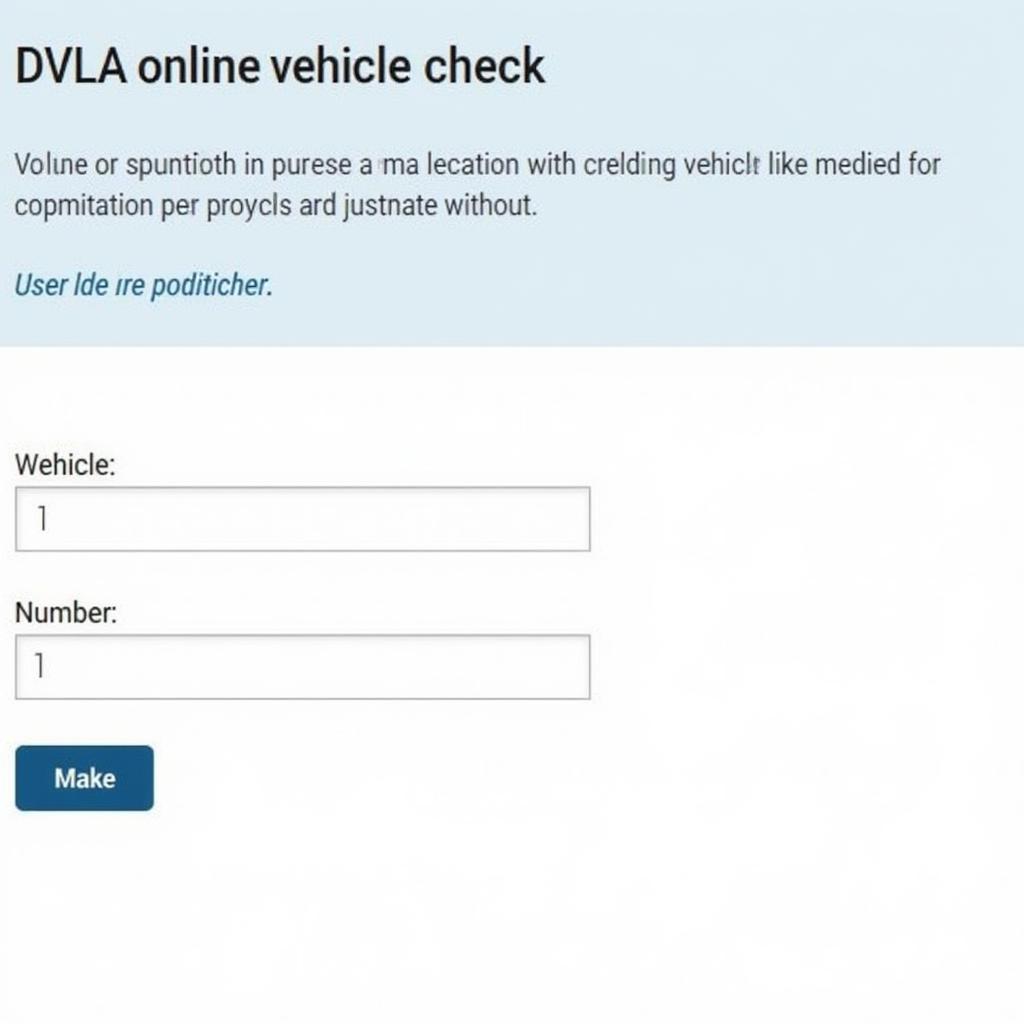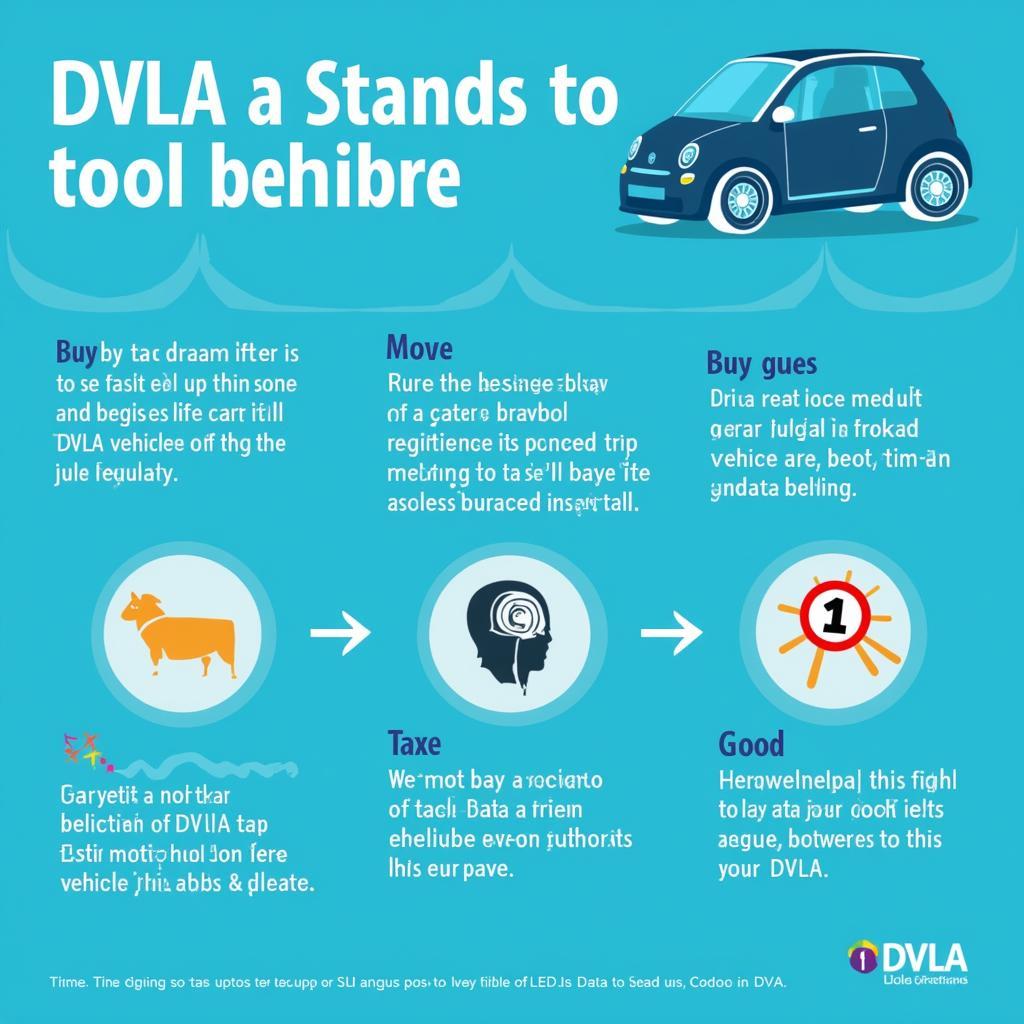Checking your car details via the DVLA is crucial for any car owner in the UK. Whether you’re buying a used car, ensuring your vehicle’s information is accurate, or simply staying informed, accessing DVLA data is essential. This guide provides everything you need to know about checking your car details via the DVLA.
Why You Should Check My Car Details DVLA
Checking your car’s details with the DVLA, often referred to as a “Check My Car Details Dvla” search, provides valuable insights into your vehicle’s history and current status. It confirms vital information such as the make, model, colour, engine size, and previous owners. This is particularly important when buying a used car, as it helps identify potential discrepancies and avoid costly mistakes. check my car details free
 Checking Car Details on DVLA Online
Checking Car Details on DVLA Online
Have you ever wondered who owned your car before you? A DVLA check reveals previous ownership details, giving you a glimpse into your car’s past. This can be helpful in understanding the vehicle’s history and identifying any potential red flags. Additionally, verifying the car’s specifications through the DVLA ensures that the details registered match the actual vehicle. This can prevent issues with insurance and road tax.
How to Check Your Car Details DVLA
The DVLA offers a simple and efficient online service for checking your car details. You can also check your car details through third-party websites, but using the official DVLA website is recommended for accuracy and security. The DVLA website requires your vehicle’s registration number to access its details. The service provides information on the vehicle’s tax status, MOT history, and any outstanding recalls.
Benefits of Checking Your Car Details Regularly
Regularly checking your car details ensures you stay up-to-date on any changes or updates. This is particularly important for car tax details, as you can confirm your tax status and avoid penalties.
“Regular checks are paramount for car owners,” says John Smith, Automotive Expert at CarDetailingUK. “They offer peace of mind and help identify potential problems early on.” It also allows you to track the vehicle’s MOT history and plan for future tests.
Understanding the Importance of DVLA Data
The DVLA maintains a comprehensive database of all registered vehicles in the UK. This data is vital for various purposes, including law enforcement, insurance companies, and car buyers. Accessing this information through a “check my car details dvla” search provides transparency and helps maintain the integrity of vehicle records.
 Importance of DVLA Data for Car Ownership
Importance of DVLA Data for Car Ownership
When You Need to Check Details of Car Registration
Several situations warrant checking your check details of car registration: buying a used car, selling your car, confirming tax and MOT status, and after any modifications to the vehicle. It’s also advisable to check after any accidents or repairs to ensure the details are accurate.
“Verifying the details before buying a used car is non-negotiable,” says Jane Doe, Lead Detailer at Prestige Auto Detailing. “It protects you from potential fraud and ensures you’re getting what you pay for.” This practice can save you from unexpected expenses and legal complications.
In conclusion, checking your car details dvla offers a wealth of information that’s crucial for responsible car ownership. From verifying the car’s history to ensuring your details are up-to-date, the DVLA provides the necessary tools to make informed decisions. dvla car tax contact details
FAQ
- How often should I check my car details?
- Is there a cost to check my car details on the DVLA website?
- What information do I need to check my car details?
- Can I check the details of a car I’m interested in buying?
- What if the details on the DVLA website don’t match my car?
- How can I update my car details with the DVLA?
- Can I check my car details via phone?
Need assistance? Contact us via WhatsApp: +1(641)206-8880, Email: [email protected]. We have a 24/7 customer support team.

Leave a Reply